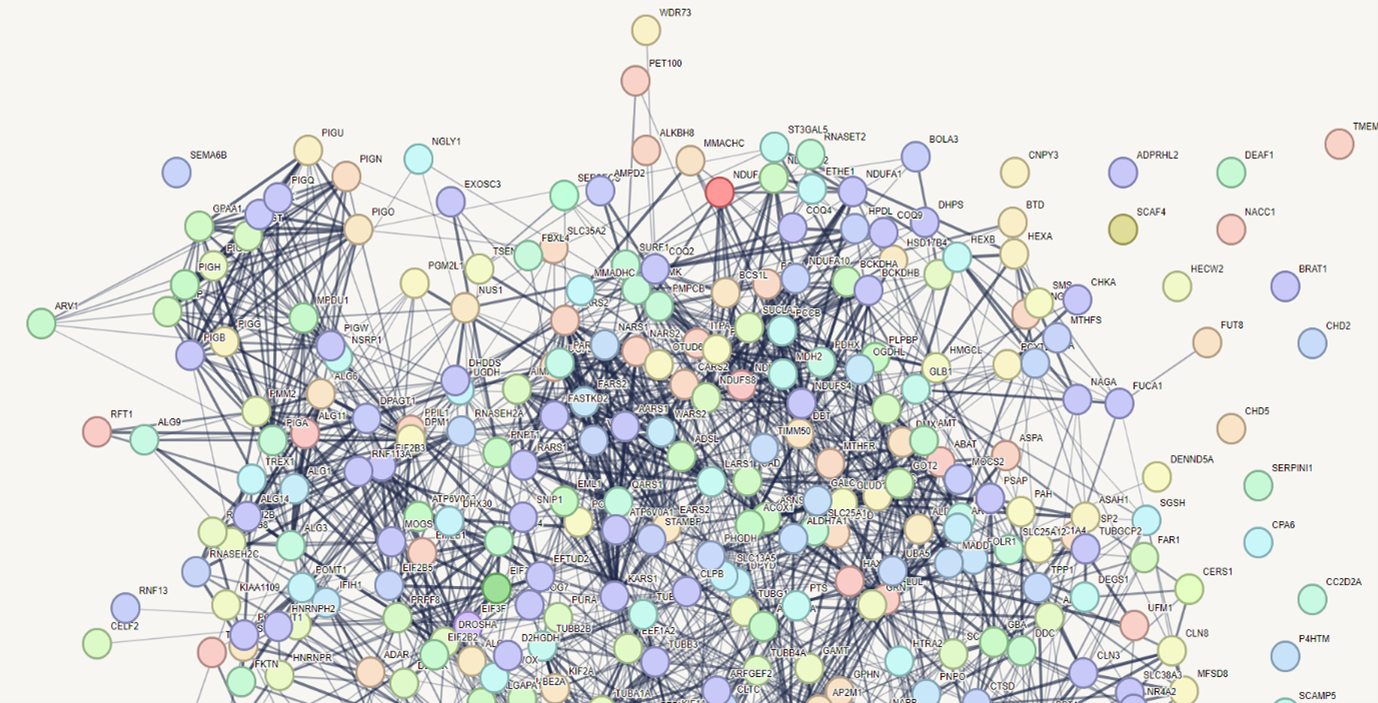
About the Research
Epilepsy is a common neurological disorder affecting 0.5-1% of the population and in ~ 50% of affected individuals a monogenic cause is strongly suspected. Current epilepsy management guidelines are focussed rightly on seizure characteristics and not its root cause. There is, however, a growing body of scientific evidence indicating that gene-specific therapy is needed for optimal treatment of genetic epilepsies. While some genetic epilepsies (e.g., channelopathies) are best managed by selecting the most appropriate antiseizure medication based on its mode of action, others may need more bespoke therapy (e.g., metabolic disorders). For some drug-resistant genetic epilepsies, molecular therapy may be the only antidote.
Over 1,000 genes have so far been identified to cause human epilepsy and 540 of them are routinely tested for in the NHS diagnostic laboratories as listed in the NHS Genomic Test Directory (https://www.england.nhs.uk/publication/national-genomic-test-directories/) . The biologic function of the gene is a critical determinant of the best therapy option. Understanding the molecular networks contributing to epilepsy and the impact of gene-directed treatments are likely to inform future global guidelines for epilepsy management and improve clinical outcomes.
The focus of the Kini group (https://www.rdm.ox.ac.uk/people/usha-kini ) is translational research aimed at the diagnosis and treatment of rare neurodevelopmental disorders, where epilepsies are often an important symptom that can affect long-term prognosis.
For this project, we will partner with Mendelian a mission-driven, UK-based, MedTech company that focuses on improving the clinical pathways of patients with rare and hard-to-diagnose patients in the NHS. Notably, they were one of the winners of the most recent NHS AI in Health and Care awards.
Our preliminary work has shown that in patients receiving rapid genome sequencing for severe, young onset epilepsy, 59% of patients with a genetic diagnosis had a change in their management. The 12-month follow-up data showed a sustained response to gene-targeted treatment in 60% of these patients.
In this project, we will aim to use machine learning/ generative AI:
To study the clinical characteristics and response to treatment of genetic epilepsies. For this, we will use Mendelian’s electronic health record (EHR) scanning technology MendelScan to identify patients with a potential undiagnosed genetic pathology that may be the root cause of their epilepsy as well as collecting data on patients already diagnosed with genetic epilepsies. We will study the phenotypic and genotypic characteristics of these patients alongside additional investigations such as EEG, MRI brain and biochemistry.
To develop a prediction tool for the severity, optimal treatment and prognosis of genetic epilepsies using the data collected.
The long-term aim of the study is to enable the development of national guidelines for the management of genetic epilepsies.
This project will provide the student with opportunities to:
– Understand the use of AI in healthcare.
– Understand the ethical and regulatory aspects of AI-related patient research.
– Develop skills to create algorithms and prediction models.
– Develop skills for working with multi-modal real-world EHR data
Study the molecular networks that are sensitive to seizure development
Training Opportunities
This is one of the few groups at the University of Oxford focussing on the personalised management of rare genetic epilepsies while using the ‘bedside to bench and back’ approach. While our work on exploring molecular networks to describe novel disease-causing genes continues, we are now using this network approach to not only understand disease mechanism but also to guide personalised therapy. We embrace newer technologies to achieve these goals, and AI is a powerful new tool in enabling a better understanding of successful therapeutic options in disorders complicated by multiple variable factors.
Students are encouraged to attend the MRC Weatherall Institute of Molecular Medicine DPhil Course, which takes place in the autumn of their first year. Running over several days, this course helps students to develop basic research and presentation skills, as well as introducing them to a wide range of scientific techniques and principles, ensuring that students have the opportunity to build a broad-based understanding of differing research methodologies.
Generic skills training is offered through the Medical Sciences Division’s Skills Training Programme. This programme offers a comprehensive range of courses covering many important areas of researcher development: knowledge and intellectual abilities, personal effectiveness, research governance and organisation, and engagement, influence, and impact. Students are actively encouraged to take advantage of the training opportunities available to them.
As well as the specific training detailed above, students will have access to a wide range of seminars and training opportunities through the many research institutes and centres based in Oxford.
The Department has a successful mentoring scheme, open to graduate students, which provides an additional possible channel for personal and professional development outside the regular supervisory framework. We hold an Athena SWAN Silver Award in recognition of our efforts to build a happy and rewarding environment where all staff and students are supported to achieve their full potential.
Additional Supervisors
1. Arjune Sen
1. Peter Fish (CEO Mendelian, London)
Publications
1
Sasaki E, et al. Impact of rapid genomic testing on clinical outcomes of acutely unwell children presenting with severe epilepsy. Eur J Hum Genet. 2025 May 21 10.1038/s41431-025-01870-5.
2
Shieh C, et al., GATAD2B-associated neurodevelopmental disorder (GAND): clinical and molecular insights into a NuRD-related disorder. Genet Med. 2020 May;22(5):878-888
3
Bayat A, et al., PIGT-CDG, a disorder of the glycosylphosphatidylinositol anchor: description of 13 novel patients and expansion of the clinical characteristics. Genet Med. 2019 Oct;21(10):2216-2223
4
Piard J, et al. The phenotypic spectrum of WWOX-related disorders: 20 additional cases of WOREE syndrome and review of the literature. Genet Med. 2018 Oct 25
5
Pagnamenta AT, et al., Analysis of exome data for 4293 trios suggests GPI-anchor biogenesis defects are a rare cause of developmental disorders. Eur J Hum Genet. 2017 Jun;25(6):669-679
6
Meador KJ, et al. Effects of periconceptional folate on cognition in children of women with epilepsy: NEAD study. Neurology. 2020 Feb 18;94(7)
